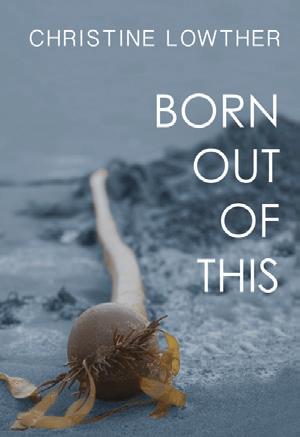
3 minute read
Christine Lowther
Walking the Dangerous Line Through Memoir.
When my first book of poems came out in 1999, some family members reacted angrily. In New Power I contemplated painful subjects silenced for decades, like my mother’s corpse and the delayed scattering of her ashes. My sister Kathy’s words on the phone shocked me: “You didn’t even like Mum.” She was talking about the seven-year-old I had been at the time of the murder.
Advertisement
When poems about childhood trauma crept into my second collection, a member of my writers’ group said, “I do hope you won’t be reprising this material in another ten years.” I have had to disappoint her!
With every new manuscript comes the fear that this truth-seeking will estrange me from my family forever. I am not out to cause unnecessary anguish. I seek justice, understanding, and to learn from history. Indeed I continue to remain silent on some subjects, incidents or abuses. But when I obtained my government files through the Freedom of Information Act, another dangerous project began.
Those files came from what was then the Ministry of Human Resources, now the Ministry of Children and Family Development. The years my sister Beth and I spent “in care” were detailed. A child psychiatrist’s letters fascinated and angered me; some social workers’ reports enraged me. While reading those records, news media kept reporting about today’s foster kids living alone in hotel rooms and suiciding. Perhaps I could help modern kids with the documents held in my hands. Better attention for them—and validation for Beth and me. Other goals? An elbow in the ribs of today’s social workers, maybe. An exposé of the BC foster care system through the telling of my own story. A challenge to the pop-culture injustice of murderers being remembered while their victims are not—and children rarely even considered.
My work on this endeavour continues four years later. Hard to ignore are the whispering voices in both ears telling me to leave it alone, shame on you, get over it. No! I will bring to light religious fanatics forcing ritual upon us; a group home run by a woman with a drug-dealing boyfriend; teachers and counsellors sending our school assignments to our father in prison behind our backs; social workers who didn’t believe children can form their own opinions. Social workers who didn’t believe children’s reports of inappropriate treatment. Workers who clearly disliked and judged us. And a final worker I loved and trusted, who came through for us. Revenge? Not a priority. I am not seeking litigation, like British author Lemn Sissay, who included some of his scanned government files in his memoir My Name is Why.
For many “in care” years, our maternal grandmother was also our foster parent. To our family, Gram was the beloved matriarch who could do no wrong. The more I wrote, the worse she sounded, as recounted from my damaged and teenaged viewpoint. What should a non-fiction writer do? I chose new names for workers, cops, lawyers, the killer, shrinks, teachers, counsellors, relatives. I decided to call Gram Mrs. Backbone. She had been a strong witness in court during the trial. Someone said she possessed a backbone of steel. I decided to remove descriptions of our conflict, and keep her strength.
Everything we writers write can hurt someone. It helps to keep in mind that my recollection of an event might not match another family member’s. As Clifton Crais wrote in History Lessons, “The crystalline, lucid image of a traumatic experience is not perfectly accurate, though it feels that way.” I am tempted by uncensored freedom, but I have chosen to soften my memories, though fairly certain no one in my family reads my work, except my cousin’s wife’s mother! And if they did read it, they might not consider it softened.
Further reading: Interview in The Malahat Review: http://www.malahatreview.ca/interviews/lowther_interview.html Born out of This (Caitlin Press, 2014) https://www.facebook.com/ ChristineLowtherAuthor










